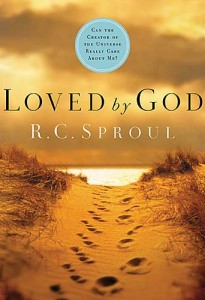Ken Ham writes:
I have to admit it. Every time I hear someone say it, it drives me nuts.
What am I referring to?
Over the past 40 years, as I’ve spoken all over the world, I’ve had many people in churches come up and say something like, “But how can the days of creation in Genesis 1 be ordinary days when the Bible says a day is like a thousand years?” Ugh!
This is when I groan internally, and then set out to explain the many problems with what they stated.
1. They are quoting a small section from 2 Peter 3:8. Now this is a passage from the New Testament, and you cannot use such a passage to determine the meaning of a Hebrew word. The meaning of a Hebrew word in Genesis (eg: “yom,” used for the word day in Genesis 1) depends on the Hebrew language. One needs to use the immediate and wider context or a Hebrew Lexicon (dictionary) to determine the meaning of a Hebrew word.
2. When I’ve been asked this question, I can’t remember a time when the person asking the question actually quoted that passage correctly. They usually say, “But a day is like a thousand years.” That is not what the Scripture states. Let’s look at 2 Peter 3:8:
“But do not overlook this one fact, beloved, that with the Lord one day is as a thousand years, and a thousand years as one day.” (2 Peter 3:8)
Now note that the text actually states, “with the Lord one day is as a thousand years.” In other words, the reference is to God, telling us that to God a day is like a thousand years. God is not limited by natural processes and time. God is outside of time. He created time. So, to God, a day is no different than a thousand years because God exists in eternity and is not bound by time.
3. I notice they always seem to quote the first part of the verse and not the rest. After “with the Lord one day is as a thousand years,” the verse continues, “and a thousand years as one day.” Now this in essence cancels out the first section.
The whole point is to God a day is like a thousand years or a thousand years a like a day. Again, it’s because God is outside of time. So, to God, a day or a thousand years doesn’t make any difference in regard to time. Now humans are created in time and we measure time by days and years. To humans, a thousand years is so much longer than one day. But that is not so for God.
4. Now let’s look at the context of 2 Peter 3. The passage leading up to verse 8 starting in verse 3 states, “Knowing this first of all, that scoffers will come in the last days with scoffing, following their own sinful desires” (2 Peter 3:3). The passage is discussing the second coming of Christ, the last days, and the scoffers who scoff at Jesus coming again: “They will say, ‘Where is the promise of his coming? For ever since the fathers fell asleep, all things are continuing as they were from the beginning of creation.’” (2 Peter 3:4).
So, these scoffers are saying that things just go on and on, so Jesus is obviously not coming back.
The passage is teaching us that for those scoffers that believe Jesus isn’t coming back again as things just seem to continue on and on, God through Peter tells us that we need to understand that to God, a day is no different to a thousand years. So humans think it’s been a long time since Jesus said he was coming back again, but, to God, it’s not a long time because he is not bound by time.
5. Then we are told why Jesus hasn’t come back yet, “The Lord is not slow to fulfill his promise as some count slowness, but is patient toward you, not wishing that any should perish, but that all should reach repentance” (2 Peter 3:9). God will decide when he will return, but in the meantime, people need to hear the gospel as it’s not his will “that any should perish.”
6. Now think about this. I have found the main reason many Christians try to reinterpret the word “day” in Genesis and use this passage from 2 Peter 3 to justify this is because they really are trying to fit the false millions of years belief into Scripture. But how will making each day 1,000 years help accommodate millions of years—it won’t!
7. I also note something else. The Hebrew word for day (“yom”) is used hundreds of times in the Old Testament, but I don’t hear anyone questioning what those days mean by claiming a day is like a thousand years. So why is it they only single out the use of word “day” in Genesis 1? Again, it’s because they’re impacted by millions of years and they’re trying to fit long ages into Genesis 1. Do we ever hear anyone claiming Jonah was in the great fish for 3,000 years because a day is like a thousand years? Of course not.
8. Now, if we take Genesis 1 as written, and look at the context for the word “day” (“yom”) for each of the days of creation, we can come to no other conclusion than those days are ordinary, approximately 24-hour days. When yom is qualified by night, evening, morning, or number it always means an ordinary day. All six days have yom qualified by evening, morning, and number. Day one also qualifies yom with night, and day seven with a number. All seven days in Genesis one are ordinary days.
Now can you see why it drives me nuts when people, usually rather glibly, say, “Oh the days of creation aren’t ordinary days as a day is like a thousand years”? I find most say this because they heard it from a friend, their pastor, Bible school teacher, or read it somewhere. Once I explain what I’ve listed above to them, most realize they have not been thinking about this correctly at all.
By the way, Psalm 90:4 states something similar as 2 Peter 3:8, “For a thousand years in your sight are but as yesterday when it is past, or as a watch in the night.” This is teaching us that with God a thousand years is like a day or a watch in the night which was four hours. So, God is not limited by time, as he is outside of time.
I urge people to study God’s Word carefully before making off-hand statements. I think people do this because we humans are so quick to question God’s Word as that’s our propensity because of our sin nature.


 “Surely one of the most difficult things for us to understand about God is His eternal nature. We are limited to time. We experience reality as a series of events- past, present and future. Our language is based upon our experience of time. We have past tenses, and present tenses, and future tenses. We think in a temporal, time-based way.
“Surely one of the most difficult things for us to understand about God is His eternal nature. We are limited to time. We experience reality as a series of events- past, present and future. Our language is based upon our experience of time. We have past tenses, and present tenses, and future tenses. We think in a temporal, time-based way. An excerpt from Dr. R. C. Sproul’s book, Loved by God.
An excerpt from Dr. R. C. Sproul’s book, Loved by God.